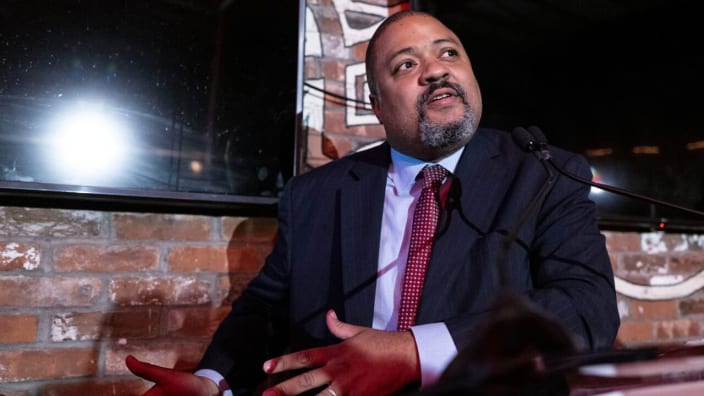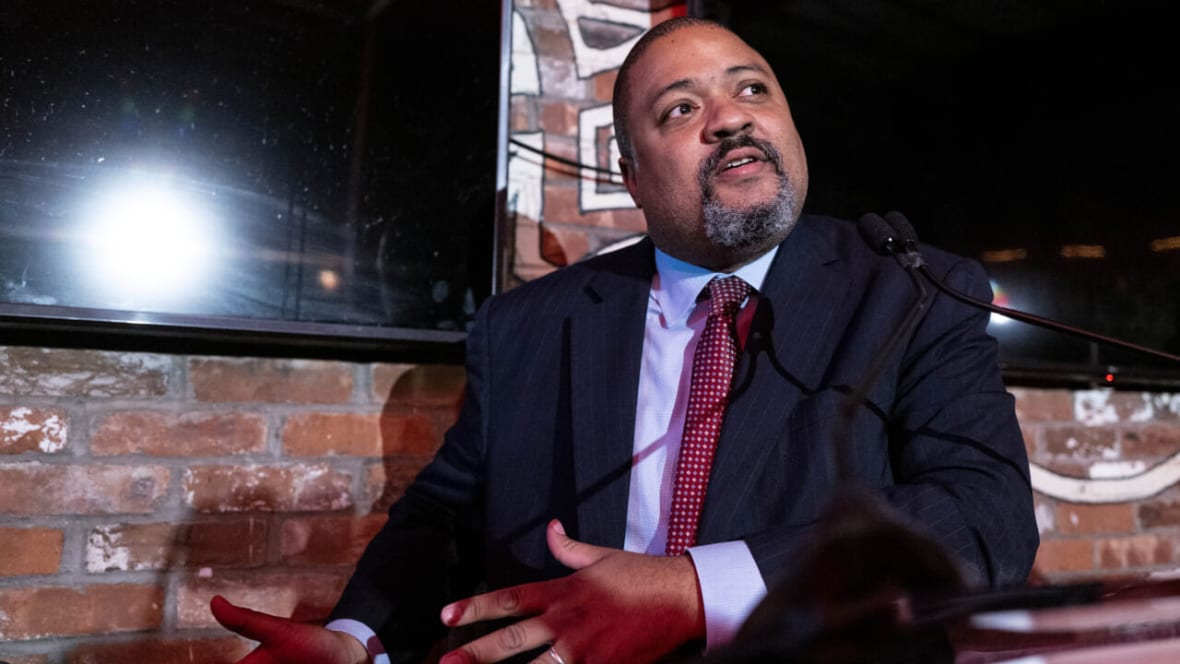Manhattan D.A. to provide funding for mental health services to people facing charges
The Manhattan district attorney has announced a plan to link New Yorkers accused of crimes with housing and mental health The post Manhattan D.A. to provide funding for mental health services to people facing charges appeared first on TheGrio.

Alvin Bragg’s initiative is voluntary and unrelated to a strategy unveiled earlier this month by New York City Mayor Eric Adams.
The Manhattan district attorney has announced a plan to link New Yorkers accused of crimes with housing and mental health resources after their initial court appearances, hopefully expediting treatment.
According to The New York Times, District Attorney Alvin Bragg said the $9 million initiative would concentrate on repeat offenders and “a high-needs population” to stop people from revolving in and out of Rikers Island and through the city’s legal system.
He said it will benefit those facing charges — some of whom currently have to wait weeks or months before receiving care — and will also involve community outreach independent of the judicial process.

New York City’s “criminal justice system must not be the main vehicle for addressing mental and behavioral health,” Bragg said, according to The Times. “By addressing these human needs, we address the broader needs of public safety.”
Bragg spokesman Doug Cohen said there are no predetermined requirements for connecting defendants to the services, but resources will target those freed from custody and into the community at large. Those accused of serious crimes are more likely to remain in custody as their cases proceed, he said.
According to Bragg, his agency intends to gauge the program’s success by observing how many individuals truly desire to utilize these social services. He hopes to expand the initiative over time.
In the first phase, which will cost around $6 million, 36 social service providers will assist homeless people in nine neighborhoods with obtaining necessities such as food and clothing before connecting them to behavioral health services and long-term housing.
Programs serving those neighborhoods — which include the Lower East Side to East Harlem — will each get a grant of about $1.4 million to fund six months of planning and three years of executing the community activities.
The second phase of the plan involves social workers meeting defendants in Manhattan criminal court after their arraignments, where they first hear the charges against them. Additionally, they can help defendants make subsequent court appearances and obtain MetroCards and suitable attire.
“Everyone has that person they’ve seen in their neighborhood for years, the one who disappears for a time and always comes back,” Bragg said Wednesday, The Times reported. “Sometimes those people are at Rikers, our leading mental health facility. And we can’t have that. We need to do something different.”
Bragg’s initiative is voluntary and unrelated to a strategy unveiled earlier this month by Mayor Eric Adams.
Adams’ plan provides police, fire and health department workers and others clearance to involuntarily send homeless New Yorkers who are experiencing a mental health crisis and are uncooperative to a hospital to be evaluated, theGrio previously reported.
“A common misunderstanding persists that we cannot provide involuntary assistance unless the person is violent, suicidal or presenting a risk of imminent harm,” Adams said when revealing his plan, theGrio reported.
“Going forward,” he added, “we will make every effort to assist those who are suffering from mental illness and whose illness is endangering them by preventing them from meeting their basic human needs.”
Several advocates for mentally ill people believe involuntary removals would be a violation of constitutional rights and have challenged the proposal in Manhattan federal court, according to The Times.
Judge Paul Crotty denied the request for a temporary restraining order but announced that hearings would take place in the coming weeks.
“Forcing people into treatment is a failed strategy for connecting people to long-term treatment and care,” said Donna Lieberman, NYCLU’s executive director, according to theGrio. “Unless we adequately invest in the long-term health and well-being of New Yorkers facing mental illness and our chronic lack of housing, the current mental health crisis will continue.”
TheGrio is FREE on your TV via Apple TV, Amazon Fire, Roku and Android TV. Also, please download theGrio mobile apps today!
The post Manhattan D.A. to provide funding for mental health services to people facing charges appeared first on TheGrio.












